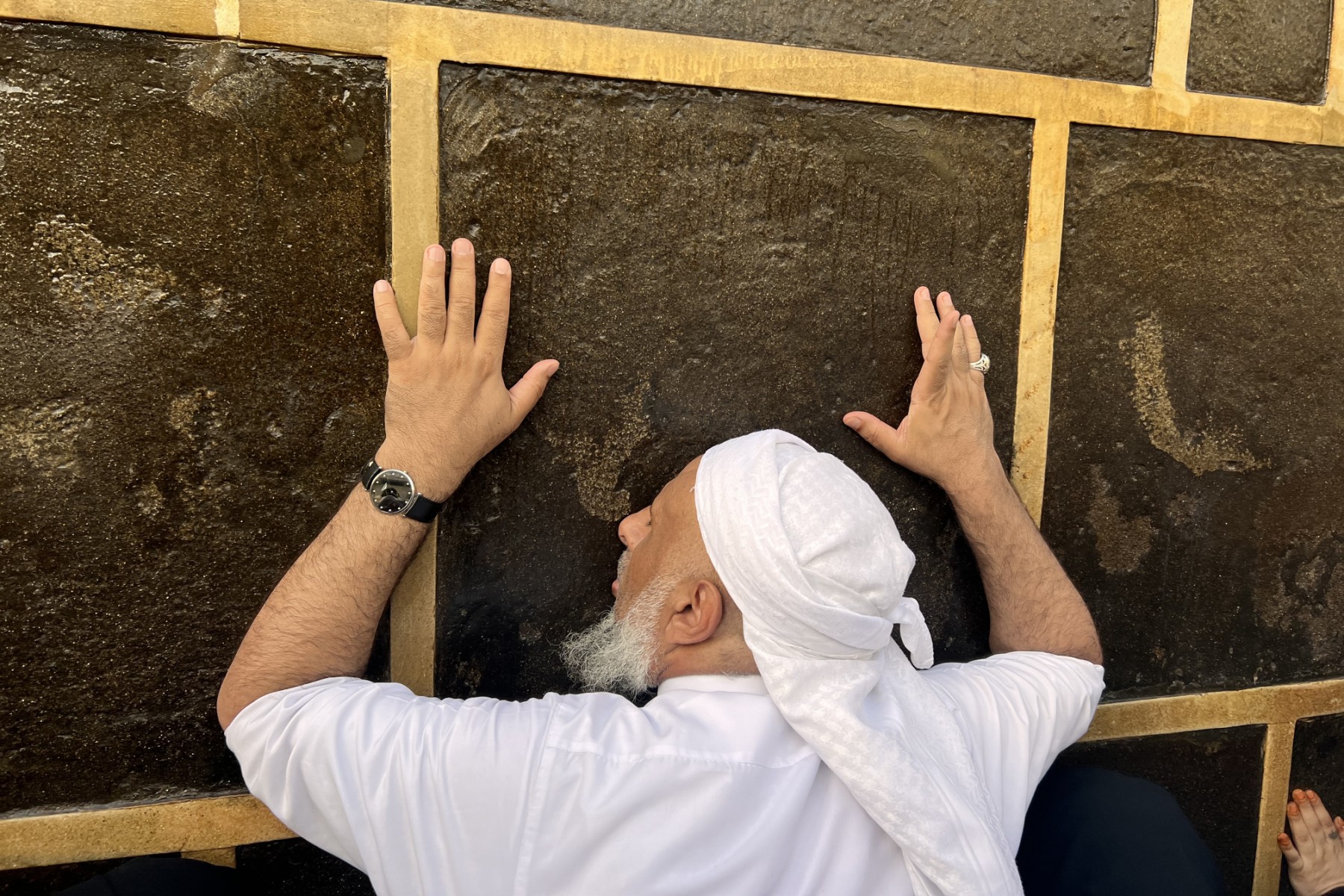Mecca, Saudi Arabia – Tens of thousands of Muslims streamed out of Islam’s holiest city on Friday after completing the annual hajj pilgrimage in Saudi Arabia’s scorching summer heat, an AFP correspondent said.
This year over 1.8 million worshippers performed the hajj, which is one of the five pillars of Islam and is among the world’s largest religious gatherings.
On Friday, two days after the last major ritual, tens of thousands of people packed roads and boarded buses out of Islam’s holiest sites in Mecca, bringing the hajj to a close, the AFP correspondent said.
They departed after performing a farewell “tawaf” – circling seven times around the Kaaba, the large black cube in Mecca’s Grand Mosque.
“I am very happy that I finished the pilgrimage safely,” said Mohammad al-Bashir, a 47-year-old Tunisian driver who was performing his last prayers on Friday.
The hajj has a history of deadly catastrophes including stampedes and militant attacks, but this year’s main challenge came from the extreme temperatures.
More than 2,000 people have suffered heat stress this year, according to Saudi authorities, after temperatures soared to 48 degrees Celsius (118 degrees Fahrenheit) during the annual rites.
At least 230 people – many from Indonesia – died during the pilgrimage, according to numbers announced by various countries which did not list causes of death.
The real figure for heat stress — which includes heatstroke, exhaustion, cramps and rashes — is probably far higher, as many sufferers were not admitted to hospitals or clinics.
This year’s attendance figures marked a dramatic increase on the 926,000 from last year, when numbers were capped at one million following the Covid-19 pandemic.
Only 10,000 were allowed in 2020, rising to nearly 59,000 a year later.
In recent years the hajj, which follows the lunar calendar, has fallen in the Saudi summer, at a time when global warming is making the desert climate even hotter.
Experts have warned that temperatures of 50 degrees Celsius could become an annual occurrence in Saudi Arabia by the end of the century.
The hajj is a major revenue-earner for Saudi Arabia, which is trying to pivot its oil-reliant economy in new directions including tourism.
The kingdom makes an estimated $12 billion a year from the hajj and year-round umrah pilgrimages.
Leaders praise Saudi Arabia’s organizational prowess
Global leaders commended the successful implementation of numerous initiatives by oil-rick kingdom to make this year’s pilgrimage a smooth affair.
These initiatives, which include major expansions to the two Holy Mosques and holy sites, facilitated a tranquil and safe environment for the fulfilment of one of Islam’s pillars.
The GCC Secretary General, Jassem Mohamed Albudaiwi, commended the government’s extensive efforts towards ensuring a smooth Hajj season. He congratulated the King Salman bin Abdulaziz Al Saud and Crown Prince Mohammed bin Salman on the successful Hajj season, highlighting the modern projects introduced by the Saudi government that fostered efficient management and coordination of this sacred event.
Adel Al-Asoomi, Arab Parliament Speaker, appreciated the Kingdom’s efforts, particularly the quality of services provided, reflecting the commitment to prioritizing pilgrim safety.
The Organization of Islamic Cooperation (OIC) also praised the Saudi Government for the successful Hajj season, acknowledging their service to the Two Holy Mosques. OIC Secretary General, Hussein Ibrahim Taha, praised the hospitality extended to pilgrims and the Kingdom’s commitment to a successful Hajj season.
Leaders across the globe, including President Sheikh Mohammed bin Zayed Al Nahyan of the UAE, sent congratulatory messages to the Saudi King, lauding the successful completion of Hajj rituals amid safety and tranquillity.
Sheikh Mohammed bin Rashid Al Maktoum, UAE Vice President, Prime Minister and Ruler of Dubai, and Sheikh Mansour bin Zayed Al Nahyan, UAE Vice President, Deputy Prime Minister and Minister of the Presidential Court, joined in sending similar congratulatory cables.
Sheikh Dr. Sultan bin Mohammed Al Qasimi, Supreme Council Member and Ruler of Sharjah, along with other high-ranking UAE officials, also extended their congratulations to the Custodian of the Two Holy Mosques on the successful Hajj season.








